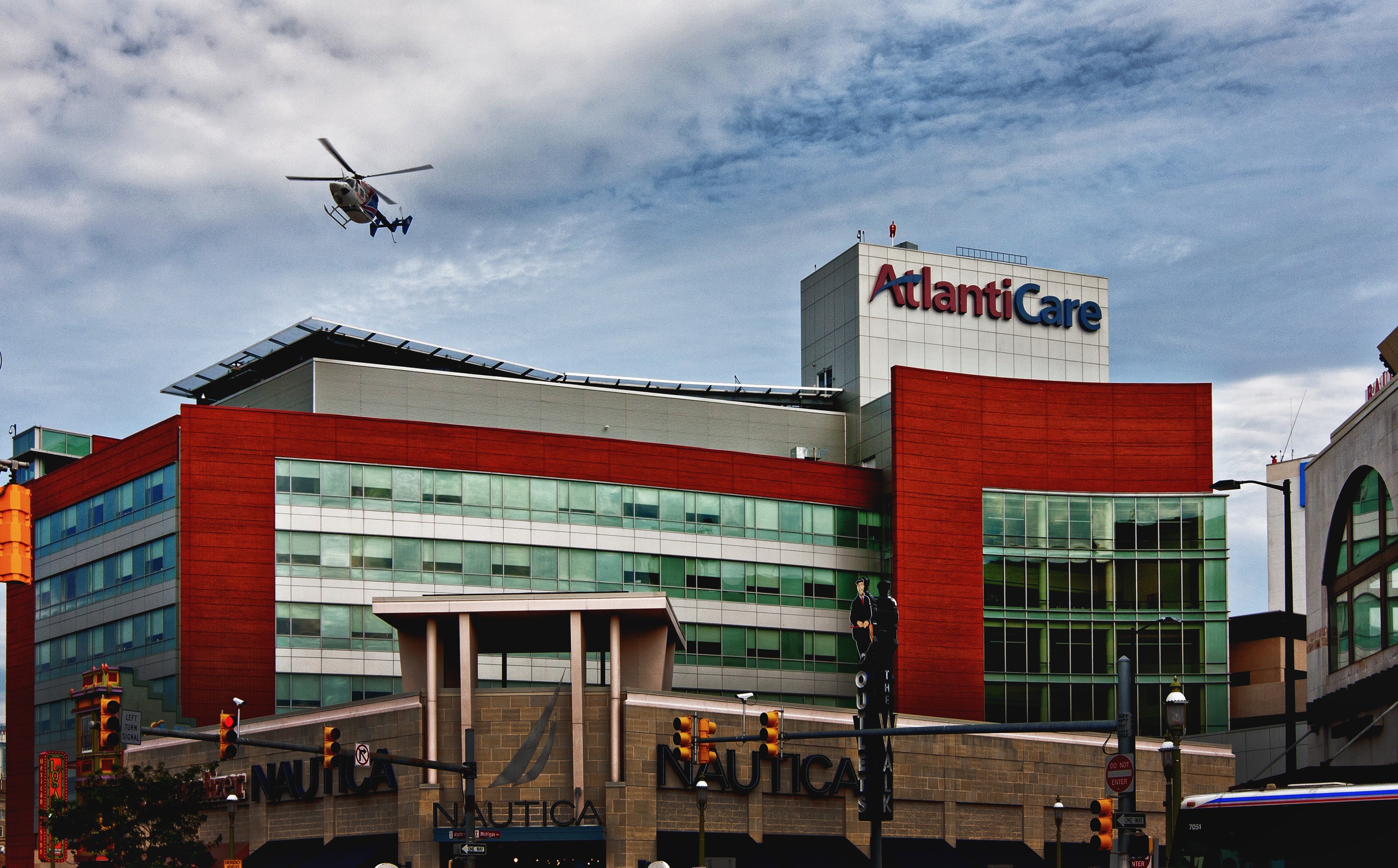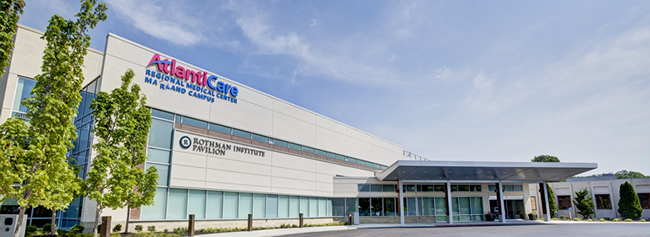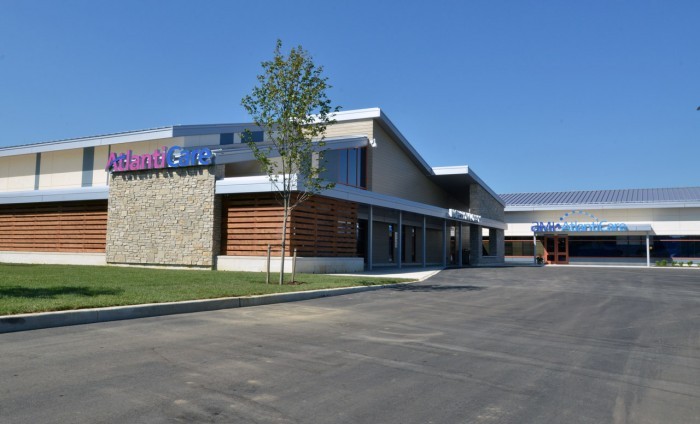Emergency Care

Emergency Department
AtlantiCare Emergency Department, Atlantic City
1925 Pacific Avenue
Atlantic City, NJ 08401
Phone: (609) 345-4000

Emergency Department
AtlantiCare Emergency Department, Mainland Campus
65 W. Jimmie Leeds Road
Pomona, NJ 08240
Phone: (609) 652-1000

Emergency Department
AtlantiCare Emergency Department, Hammonton
219 N. White Horse Pike
Hammonton, NJ 08037
Phone: (609) 704-3360
What is considered an emergency?
Dial 9-1-1 for the following emergencies:
- Chest pain/discomfort that lasts more than a few minutes, or that goes away and comes back. It can feel like uncomfortable pressure, squeezing, fullness or pain.
- Pain or discomfort in one or both arms, the back, neck, jaw or stomach.
- Shortness of breath with or without chest discomfort.
- Breaking out in a cold sweat, nausea or lightheadedness
- Sudden numbness or weakness of the face, arm or leg
- Sudden confusion or trouble understanding
- Trouble speaking
- Sudden trouble seeing in one or both eyes
- Sudden trouble walking
- Pain or discomfort in one or both arms, the back, neck, jaw or stomach.
- Dizziness
- Loss of balance or coordination
- Sudden, severe headache
- Profuse bleeding
- A change in mental status
- A fall in which the head is struck
- You/the person is in a life-threatening condition/situation
- The medical condition could worsen and become life threatening on the way to the hospital
- Moving the person could cause further injury
- You think you/the person might need the skills and/or equipment of Emergency Medical Services personnel (EMTs/Paramedics)
- Distance or traffic conditions could cause a delay in getting to the hospital
- Pain or discomfort in one or both arms, the back, neck, jaw or stomach.
- Chest pain/discomfort that lasts more than a few minutes, or that goes away and comes back. It can feel like uncomfortable pressure, squeezing, fullness or pain.
- Pain or discomfort in one or both arms, the back, neck, jaw or stomach.
- Chest pain/discomfort that lasts more than a few minutes, or that goes away and comes back. It can feel like uncomfortable pressure, squeezing, fullness or pain.
- Pain or discomfort in one or both arms, the back, neck, jaw or stomach.
- Chest pain/discomfort that lasts more than a few minutes, or that goes away and comes back. It can feel like uncomfortable pressure, squeezing, fullness or pain.
- Pain or discomfort in one or both arms, the back, neck, jaw or stomach.
- Chest pain/discomfort that lasts more than a few minutes, or that goes away and comes back. It can feel like uncomfortable pressure, squeezing, fullness or pain.
- Pain or discomfort in one or both arms, the back, neck, jaw or stomach.
What injuries/illnesses are best treated at ARMC’s Emergency Department or Emergency Center?
- Patients requiring advanced life support or critical care
- Patients requiring surgery
- Patients in labor or more than 20 weeks pregnant with medical problems related to the pregnancy
- Patients with complex medical conditions
- Patients with severe chest pain or abdominal pain
- Patients vomiting blood or with rectal bleeding
- Patients with psychiatric illness and/or who are in crisis
- Patients under the influence of alcohol or other substances or showing altered mental status
- Patients with severe shortness of breath
- Patients requiring advanced radiology and laboratory testing
- Patients with traumatic injuries including blunt injuries to the head, neck or torso; deep puncture wounds, multiple bone fractures and other potentially serious injuries to the head, spine or vital organs. These are often injuries resulting from falls, motor vehicle crashes or violent acts.
As a Regional Trauma Center, ARMC City Campus is the most appropriate facility in our region for critically ill and injured patients.
What are the hours of your Emergency Rooms?
All of AtlantiCare's Emergency Rooms, including both campuses of ARMC and the Satellite Emergency Room in Hammonton are open 24 hours a day, every day.
How can patients get care at the ARMC Emergency Departments?
Patients can be walk-ins or be transported by an emergency vehicle.
